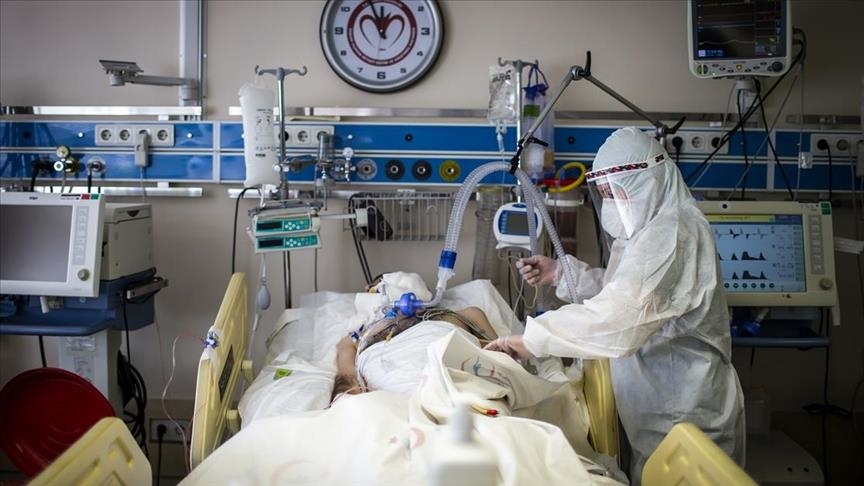COVID-19 reinfection may hit more severely: Expert
All people from 1 to 100 years of age are at risk, says infectious diseases specialist

ANKARA
Patients who have recovered from the novel coronavirus may face a more severe infection if they catch the virus for the second time, a Turkish infectious diseases expert said.
The doctors encountered 3-4% of cases among patients who were infected for the second time three months after their recovery, Dr. Umit Savasci, infectious diseases and clinical microbiology specialist at the Gulhane Training and Research Hospital in the capital Ankara, told Anadolu Agency.
More intense involvement of infection in patient's lungs is highly expected when a person becomes coronavirus positive for the second time, he said.
"If the patient passes COVID-19 very easily in the first time, it could be mild in the second time as well. If the patient was hospitalized in the first time, he may need intensive care in the second time. Especially the elderly geriatric patients may need this," Savasci said, recalling that the coronavirus is causing damage to lungs and kidneys.
Savasci pointed out that the COVID-19 risk scale and the age group at risk has changed recently.
"Previously, people aged 65 and over were at risk, but now, people from one to 100 years of age are at risk [...] Workers aged 30-40 are also at risk. Especially if the young people do not pay attention to their sleep and nutrition, if they have intense working conditions, they may come to our clinics in a more severe condition than an elderly person due to their suppressed immune system."
He also emphasized that the immune system of people with obesity, hypertension, heart problems, as well as chronic obstructive pulmonary disease patients and those who use immunodepression drugs, is not capable of clearing the virus from the body.
High risk
People, who came into contact with droplet infection for 15 minutes or more without wearing a mask at a distance of less than one meter (nearly 3.3 feet), are at the high risk, Savasci said.
"People who live in the same house and employees work side by side without wearing a mask are considered at high risk. If there are masks on both sides, contamination is not possible," he said.
The doctor warned that if there is no symptom after 15 minutes of contact without wearing a mask, there is no need to have a coronavirus test immediately.
"Let's not have a test before the fifth day. It is unlikely to get the test positive before that time," Savasci said.
However, during this period, if people have symptoms such as fever, cough, loss of taste and smell, shortness of breath, weakness, or diarrhea, then they should undergo a coronavirus test, he concluded.
The COVID-19 pandemic has claimed more than 1.50 million lives in 191 countries and regions since first being detected in Wuhan, China in December last year.
Over 65.28 million cases have been reported worldwide, with nearly 42 million recoveries, according to figures compiled by US-based Johns Hopkins University.
While the US, India and Brazil remain the worst-hit countries in terms of the number of cases, Europe is in the grip of a devastating second wave of infections.
*Writing by Jeyhun Aliyev
Anadolu Agency website contains only a portion of the news stories offered to subscribers in the AA News Broadcasting System (HAS), and in summarized form. Please contact us for subscription options.


